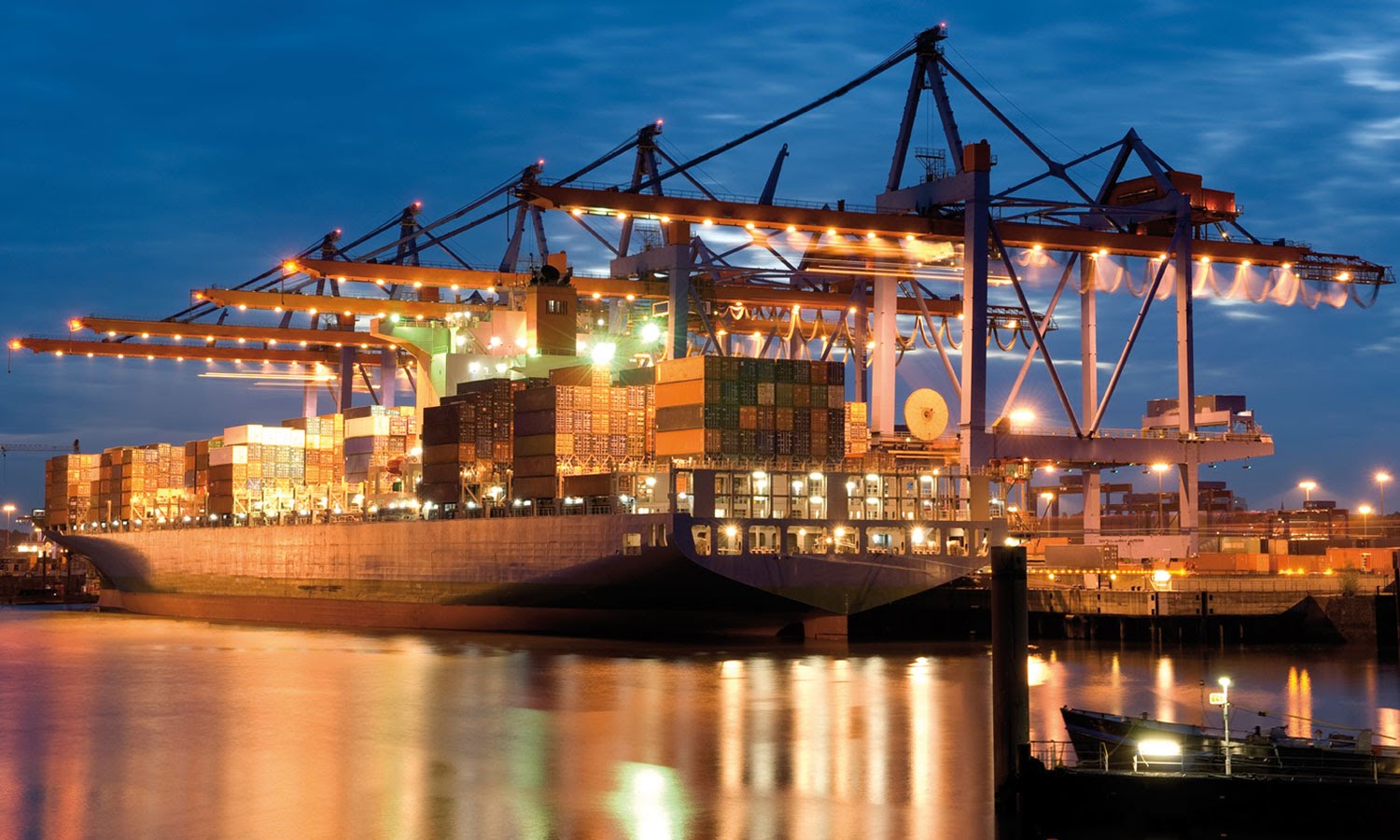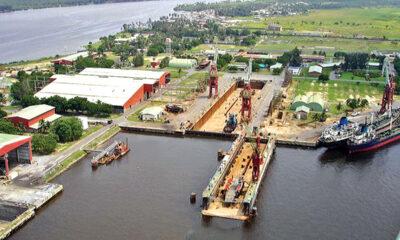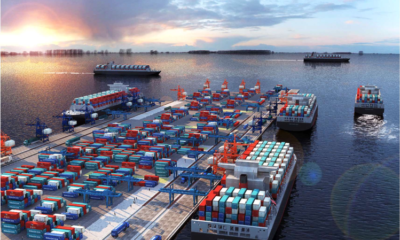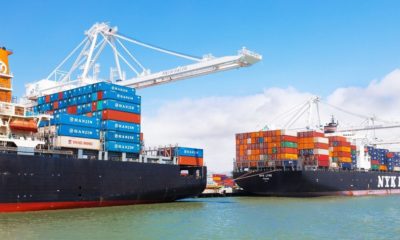- WACT Lifts Onne Port With $10m Facility Upgrade
The West Africa Container Terminal (WACT) yesterday launched two new Mobile Harbour Cranes (MHCs) $10 million (about N3.6 billion) for the discharge of cargoes at the terminal.
The Mobile Harbour Cranes (MHCs), which is coming on the heels of 10 specialised terminal trucks and two new reach stackers, are expected to increase the turnaround time of vessels at the terminal.
The two new container cargoes handling facilities would bring WACT, one of the most efficient container terminals outside Lagos, at par with its peers in Apapa, and Tin Can Island Ports, in terms of equipment and operational efficiency.
Speaking at the inauguration in Onne, Rivers State, the Managing Director, WACT, Aamir Mirza, said the massive investment at the terminal has attracted 700 direct and 2000 indirect employment in the country.
He said the company has recorded tremendous growth of 17 per cent in 2017, 21 per cent growth in 2018 and 20 per cent growth attained so far this year.
Mizra described the $10 million investment as a key enabler to customers’ satisfaction.
“Our vision is to make WACT the best performing container terminal in West Africa. We believe this vision can be realised early enough if the government can support us to reduce the challenges of security by ensuring the safety of vessels on our waters and improve road connectivity, among others,” he said.
Mirza said the cranes would enable volume growth resulting in increased productivity; reduced port stay and provide bunker savings; improve reliability in cargo delivery times; reduce the impact of crane breakdown/idle time on overall terminal operations, and increase customers satisfaction and speedy delivery.
Also speaking at the event, the Executive Secretary of Nigeria Shippers’ Council (NSC), Hassan Bello, said the new cranes will aid efficiency and improve vessels turn around time at the terminal
He reiterated the Federal Government’s commitment to encouraging more importers to patronise Onne Port, adding that government is determined to see shipping make significant contributions to the economy.
He said: “Our terminals need to grow and show efficiency. I am happy with the competition because this is how to compete. We need options, the choice for shippers where they will discharge their cargoes.
“The commissioning of these Mobiles Harbour Cranes is no doubt significant because it will improve efficiency. We are happy with the 30 per cent increase in volumes of cargoes and the long run, more Nigerians would be employed and it will make the terminal operation contribute to the economy.
“The more efficiency we have, the more cargoes we will get because Nigeria is a natural harbour due to the available market and I am happy today that this terminal is becoming one of the most efficient we have in West Africa and this is gladdening our hearts, and the main reasons for concessioning the port to the private sector will be realised by this terminal and we will use this terminal to benchmark the performance of other terminals.”
The Managing Director, Oil and Gas Free Zone Authority (OGFZA), Umana Okon Umana, lauded WACT for making the nation meet the objectives of establishing the free zone.
He promised to run the free zone professionally and assured of the provision of dedicated power to the zone for efficient service delivery.
He said: “For us, the fact that WACT is expanding their operation is a show of confidence they have in the economy and confidence they have in Nigeria and the MD said they have sent Nigerians out for training because this is very specialised equipment and as we know; the objectives of free zones is to attract FDI that will support job creation, support transfer of skills and technology and what government loses by tax revenues, government takes back in employment, skills and transfer of skills.”
The Managing Director of Nigerian Ports Authority (NPA), Hadiza Bala Usman, lauded the company for acquiring the new cranes, even as she urged shippers to patronise Onne Port.
Usman, who was represented by the Onne Port Manager, Al-Hassan Ismaila, said the government is looking into the security of vessels on the nation’s high sea.
“The Onne Port is a nexus to connecting the North-East, North-Central, South-South and South-East, so cargoes for this section of the country is expected to be discharged through this port.
“We are calling on shippers to patronise Onne Port because of the friendly environment, and the synergy between the agencies of government operating at the port,” she added.
The ceremony was witnessed by several stakeholders, including the representatives of shipping companies, Customs, freight forwarders, truck operators, importers, exporters and government agencies.

 Naira4 weeks ago
Naira4 weeks ago
 Naira4 weeks ago
Naira4 weeks ago
 Travel3 weeks ago
Travel3 weeks ago
 Naira3 weeks ago
Naira3 weeks ago
 Jobs4 weeks ago
Jobs4 weeks ago
 Naira3 weeks ago
Naira3 weeks ago
 Investment4 weeks ago
Investment4 weeks ago
 Travel4 weeks ago
Travel4 weeks ago


























